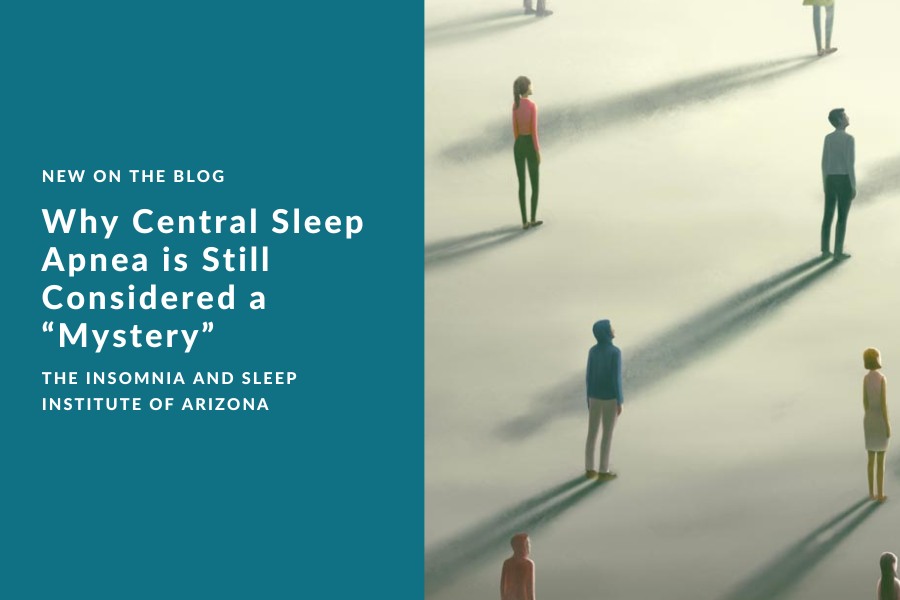According to Sleep Review editor Sree Roy, primary central sleep apnea (CSA) is still a bit of a mystery—but a recent retrospective study reveals some truths about the disorder. CSA is definitely rarer than obstructive sleep apnea (OSA). OSA has been diagnosed in approximately six million Americans and it’s estimated that many more likely struggle with it. However, CSA affects less than one percent of the overall U.S. population. There are causes and triggers for OSA, with one of the most common being excess weight. Oftentimes, when a person loses weight they also drastically reduce or even eliminate their OSA symptoms. This is not the case with CSA, which is a brain-based sleep disorder.
Primary central sleep apnea has an “unknown etiology” according to Roy. One sleep doctor who works with the Mayo Clinic says, “Unlike other forms of central sleep apnea, our knowledge about prevalence and long-term outcomes of primary central sleep apnea is limited.” This mystery led to a retrospective population-based study via the Rochester Epidemiology Project in which patients who had a central sleep apnea diagnosis from a polysomnography study were analyzed. The full study can be found in Sleep Medicine.
CSA and Your Health
On average, the study included a follow-up that was 4.4 years after the initial findings. Those who had primary central sleep apnea also had a “higher than expected” frequency of death compared to their counterparts without CSA. In fact, they were 24 percent more likely to have died. Plus, they had higher rates of dementia and related impairment—20 percent higher. Cardiac arrhythmias (not including heart failure) were 12 percent higher in this group. These are all extremely serious potential co-morbidities of CSA, and it is important to note that those with unmanaged OSA may face similar associations.
However, the research team says that there may be missing existing clinical conditions in the studies that were not reported. Perhaps someone already had a heart condition or dementia and it simply was not recorded at the start of this study. Still, “It is also possible that primary central sleep apnea is having these deleterious health implications” says the researchers. Additionally,
Sleep disturbances in patients with dementia are common and perhaps central sleep apnea can be a result of brain stem involvement. Perhaps primary central sleep apnea could be a prodromal feature of cognitive impairment or untreated central sleep apnea could have contributed to arrhythmias.
According to the researchers, since relatively little is known about the pathophysiology of primary central sleep apnea, it is difficult to explain the apparent negative outcomes. Still, “Nevertheless, this finding highlights the importance of health surveillance and bringing up any sleep concerns to the primary health provider and referring to a specialist when necessary.” Referrals have long been a barrier when it comes to seeing specialists, which is why at The Insomnia and Sleep Institute, no referral is needed.
Study Details
Of the 23 patients who began CPAP therapy (out of 25), one used nocturnal oxygen supplementation and one declined such therapy. However, the frequency of negative outcomes did not seem to correlate to the adherence of CPAP therapy. Adherence is typically considered using the therapy for at least four hours every night and is necessary for insurance coverage. The small sample size and rarity of primary central sleep apnea may mean that this detail is moot. The researchers call for more studies and that patients should be encouraged to follow the recommendations of their healthcare providers, especially when it comes to CPAP therapy.
The researchers’ conclusion was that, “We believe that large-scale prospective multicenter studies should be conducted in order to shed light into the clinical significance of primary central sleep apnea.” If you suspect you have a sleep disorder, whether sleep apnea or otherwise, the first step is seeing a sleep expert who can diagnose such disorders. This often calls for testing and then, if applicable, treatment. The quicker a sleep disorder is diagnosed and treated, the better off your health and quality of life will be. We work with patients as young as two years old because sleep disorders, including CSA, can affect anyone of any age. Schedule your consultation today by calling the office during business hours or filling out the online contact form now.





